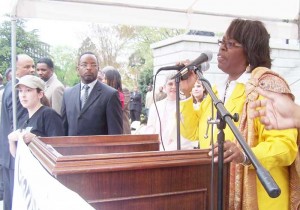Enough already!
By John Patrick Dawkins
Midlands Coordinator, SC Progressive Network
We get the message: Lesbian, Gay, Bisexual, Trans-gendered and Queer citizens of South Carolina deserve no protections in the state, no rights to life, liberty and the pursuit of happiness — or, apparently, a safe learning environment in one of the worst-performing public education systems in the country.
In 2006, the citizens of South Carolina passed Amendment 1 and changed the state constitution to codify bigotry directed towards the LGBTQ community. We cannot get married and, more pressingly, have no domestic partnership rights to protect our families. No joint health care. Hospital visitation denied in all but a few cities. Double taxation on our households, lack of spousal benefits. The list goes on.
In 2008, the LGBTQ youth were targeted. Something as simple as starting a Gay/Straight Alliance in a local high school (a space free of homophobia, where youth of any sexual orientation can be themselves in an otherwise hostile climate) was labeled an attack on “traditional family values and parents rights.” The LGBTQ community and its leaders, heterosexual supporters and other organizations fought for three months to overcome bigotry and create LGBTQ safe spaces in our public schools — a small yet significant victory.
Now they’re at it again.
H 3543 started out as a simple, common sense bill to protect all students from relationship violence. Our governing body found “…when a student is a victim of dating violence, his or her academic life suffers and his or her safety at school is jeopardized.” H 3543 has since become a platform for some of our elected officials to promote yet more religious bigotry and discrimination.
On Wednesday, Rep. Greg Delleney, (R-Chester) introduced an amendment to the bill that defined a dating partner as exclusively heterosexual, thereby limiting the protections afforded to LGBTQ youth and, furthermore, legislating the way all Queer relationships are defined. We cannot marry or join together in domestic partnerships, and now our casual relationships are no longer seen as dating.
The amendment passed with little opposition.
Bill sponsor Rep. Joan Brady (R-Richland) told one reporter, “Traditional domestic violence occurs in a man-woman, boy-girl situation.” She claims that, statistically, the majority of abuse happens in heterosexual relationships. Now, open LGBTQ folks make up roughly 10-15 percent of the population, so statistically you will see more abuse in heterosexual-defined relationships. This does not mean the percentage of abusive relationships are not the same between either group, nor that any one group of people should be denied the protections that are offered another.
Using Rep. Brady’s logic, we should rewrite the bill to exclude protections to our straight male youth who are faced with dating violence because, statistically, female-on-male violence is much less prevalent. As much as I would like to say violence does not happen in the LGBTQ community, as happy as it would make me to think that we, as a community, have overcome relationship abuse, the truth is that same-sex relationship violence is every bit as much a day-to-day reality to LGBTQ youth as it is to heterosexual youth.
If we truly want to curb violence in schools — and in society as a whole — we cannot allow elected officials to use legislation whose original intent is to protect, as a soapbox for their personal sense of morality. To do not only puts our youth at risk, it reinforces the systemic problem of homophobia in our state, granting justification to the hatred already aimed at LGBTQ citizens of South Carolina.
The third and final reading of the bill is on Tuesday, May 19.



